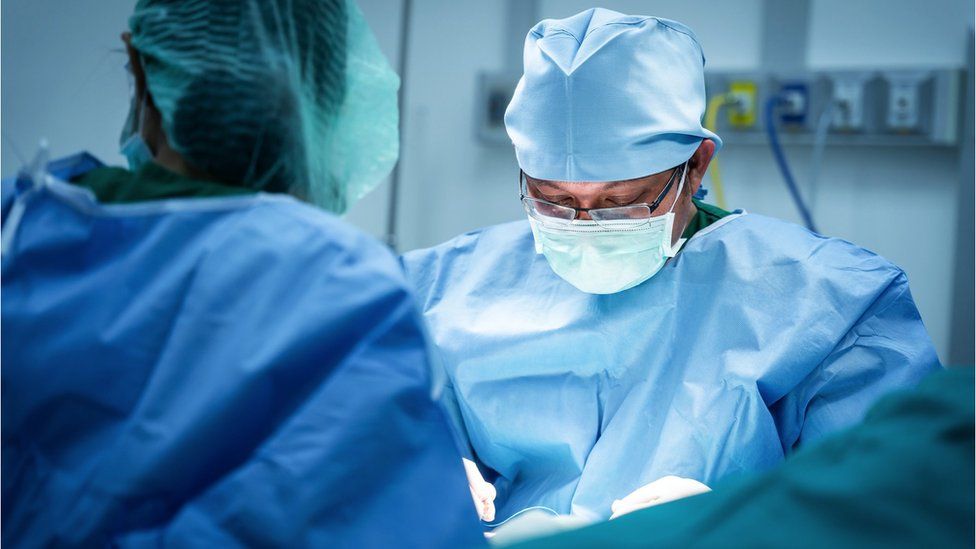ARTICLE AD BOX
 Image source, Getty Images
Image source, Getty Images
By Nick Triggle
Health correspondent
The number of appointments and treatments postponed by strike action in the NHS in England is nearing one million.
The 48-hour walkout by consultants in England last week saw more than 45,000 appointments being cancelled.
It brings the total number of postponed hospital appointments since industrial action began in the NHS in December to 885,000.
Once mental health and community bookings are included, it tops 944,000.
The true total is likely to be even higher, as services have stopped scheduling appointments on strike days and these will not be included in the figures released by NHS England.
Alongside consultants, junior doctors, nurses, physios, ambulance workers and radiographers have also walked out at various stages.
NHS national medical director Professor Sir Stephen Powis said: "Industrial action continues to have a huge impact on the NHS, and on the lives of patients and their families.
"This strike took place into a bank holiday weekend, when NHS activity is generally lighter, but many services have for some time avoided scheduling any planned appointments for strike days in order to prioritise emergencies.
"This means the true impact of this action will be even higher, and as we move into September, the extraordinary cumulative effect of more than nine months of disruption poses a huge challenge for the health service, as staff work tirelessly to tackle the backlog."
'Snowballing impact'
Consultants are planning more strikes in September and October, while the result of a re-ballot of junior doctors is due in the coming days.
If junior doctors vote in favour of strike action, it will mean they have a new mandate for six months.
Sir Julian Hartley, of NHS Providers, which represents health managers, said he was "alarmed by the snowballing impact" of the strikes.
"Nearly one million people across England have now had appointments pushed back due to walkouts. On top of that there is the immeasurable impact of all the appointments that could not be booked on the strike itself.
"NHS leaders understand why some staff feel pushed to strike, but they are also worried by the impact this is having on the patients, and wider workforce morale."
Juniors doctors have asked for a 35% pay rise to make up for what they say are below inflation wage rises for 15 years.
Consultants too say they have seen a similar cut, and have asked for pay rises that are above inflation.
The government gave doctors an extra 6% this year - with junior doctors getting an extra £1,250 - bringing their average rise to nearly 9%.
Ministers have said these are the final settlements, and are what the independent pay review body recommended.
Related Internet Links
The BBC is not responsible for the content of external sites.

 1 year ago
49
1 year ago
49








 English (US) ·
English (US) ·